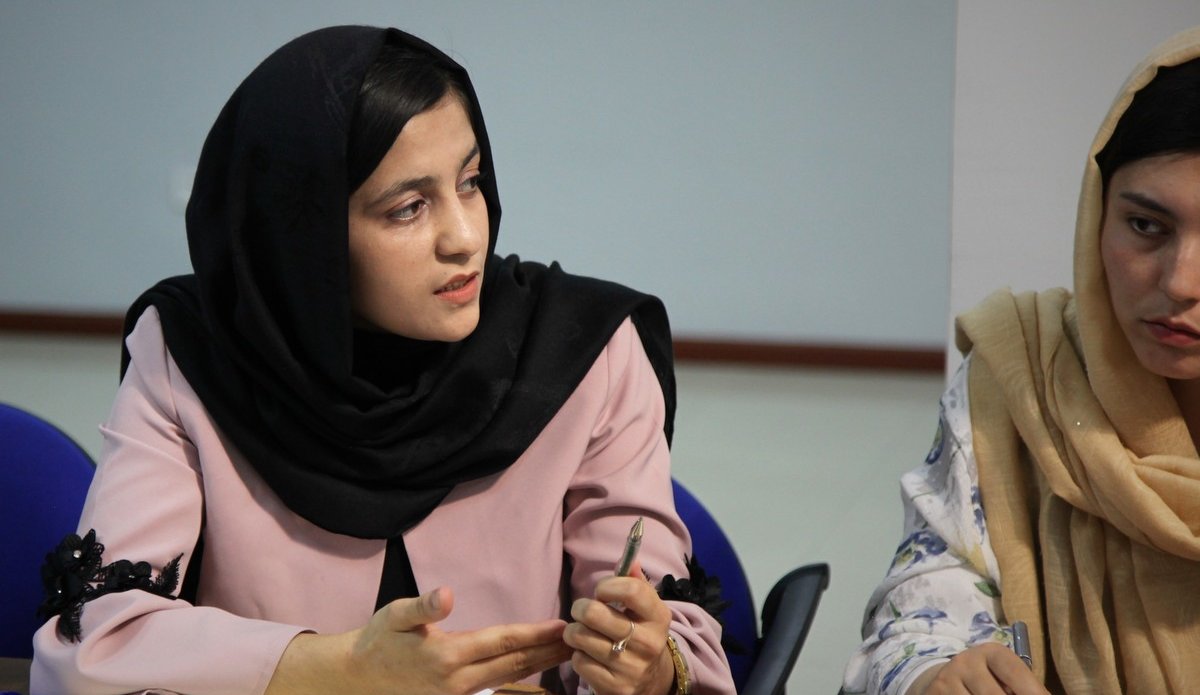Effective coordination essential for protecting women’s rights, say Balkh leaders
MAZAR-E-SHARIF - Strong synergy between government officials, civil society members, rights advocates and other community leaders is essential for protecting the human rights of women and girls, said participants at a recent symposium in the northern province of Balkh.
The event, organized by UNAMA’s Mazar regional office, drew more than 20 community leaders to discuss ways to improve accountability for crimes of violence against women by coordinating through Balkh’s Commission on the Elimination of Violence Against Women.
“Despite some positive change, the formal justice system is broken and time-consuming, and there is a lack of sufficient coordination and synergy that needs improvement among Commission members,” said Sayed Mohammad Sami, head of the northern region’s Afghan Independent Human Rights Commission.
The Commission was established to ensure real-time coordination on cases of violence against women. It is chaired by the governor’s office and consists of representatives from government departments along with Bar Association members, civil society leaders, law enforcement officials, women’s rights defenders and members of the Afghan Independent Human Rights Commission.
In the discussion at the event, participants sought to refine the Commission’s coordination mechanisms, particularly around referring cases of violence against women to the appropriate authorities. They also discussed ways to improve the justice system’s formal responses to these cases.
Hayatullah Jawad, another participant, urged Commission members to do more than merely report. “The Commission has a responsibility to circulate accurate information, along with professional and constructive views on how to make the Commission more functional and useful,” stressed Jawad, the head of the Afghan Human Rights Research and Advocacy Organization and a civil society activist.
While the Afghan government has taken measures to enforce legal protections to protect women and girls from violence, most cases of violence are still mediated, and further concerted and concrete measures are required to end widespread violence and discrimination against Afghan women and girls, and to ensure they have access to formal justice.
Toward the end of the discussion, participants jointly identified existing gaps in the current system and made recommendations to address them, including by urging that similar meetings be held as frequently as once each month to ensure that the recommended improvements are implemented.
The United Nations family in Afghanistan maintains that alongside the effective legal and institutional mechanisms for access to justice, stopping violence against women requires an effort from everyone, not only in actions but also in speaking out against violence in homes, workplaces and social settings.
The event was organized by UNAMA’s northern regional office as part of a countrywide outreach programme aimed at creating platforms – using radio, television and social media – to enable Afghans to engage in dialogue on pressing issues affecting their communities.
At almost every UNAMA-backed event, local media partners not only record the discussion and debate for later rebroadcast but also create new programmes around the issues that are raised, extending the discussion and creating new opportunities for local voices to be heard on issues such as peace, reconciliation, government transparency, human rights and rule of law.
In accordance with its mandate as a political mission, UNAMA supports the Afghan people and government to achieve peace and stability. UNAMA backs conflict prevention and resolution, promoting inclusion and social cohesion, as well as strengthening regional cooperation. The Mission supports effective governance, promoting national ownership and accountable institutions that are built on respect for human rights.
UNAMA provides 'good offices' and other key services, including diplomatic steps that draw on the organization’s independence, impartiality and integrity to prevent disputes from arising, escalating or spreading. The Mission coordinates international support for Afghan development and humanitarian priorities.
 UN
UN







